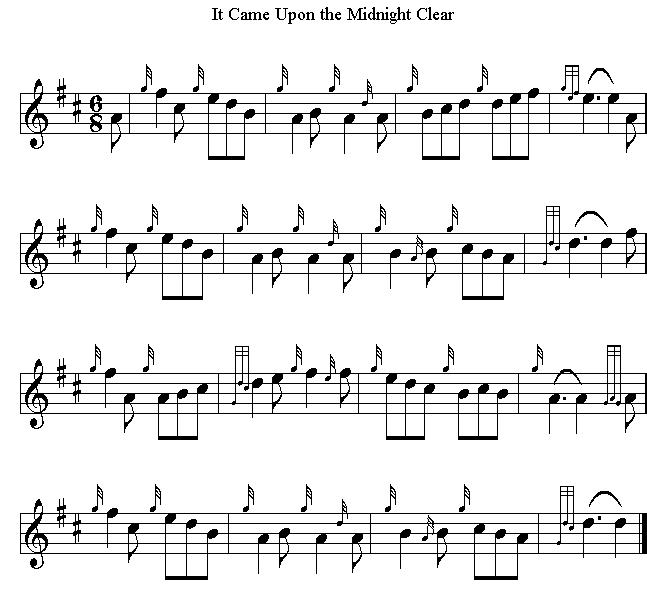 |
||||

Best viewed in
|
It Came Upon the Midnight Clear "It Came Upon a Midnight Clear", is based on an 1849 poem written by Edmund Sears, pastor of the Unitarian Church in Wayland, Massachusetts. It first appeared on December 29, 1849, in The Christian Register in Boston, Massachusetts. He wrote It Came Upon the Midnight Clear while serving as a part-time preacher in Wayland. Writing during a period of personal melancholy, and with news of revolution in Europe and the United States' war with Mexico fresh in his mind, Sears portrayed the world as dark, full of "sin and strife", and not hearing the Christmas message. Sears is said to have written these words at the request of his friend, William Parsons Lunt, pastor of United First Parish Church, Quincy, Massachusetts, for Lunt's Sunday school. One account says the carol was first performed by parishioners gathered in Sears' home on Christmas Eve, but to what tune the carol was sung is unknown as Willis' familiar melody was not written until the following year. According to Ken Sawyer, Sears' song is remarkable for its focus not on Bethlehem, but on his own time, and on the contemporary issue of war and peace. Written in 1849, it has long been assumed to be Sears' response to the just ended Mexican–American War. The song has been included in many of the Christmas albums recorded by numerous singers in the modern era. In 1850 Richard Storrs Willis, a composer who trained under Felix Mendelssohn, wrote the melody called "Carol". This melody is most often set in the key of B-flat major in a 6/8 time signature. "Carol" is still the most widely known tune to the song in the United States.
Lyrics by Edmund Sears
|
|||
